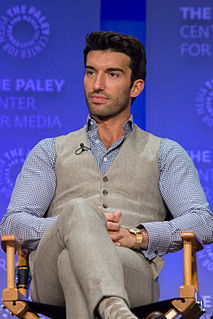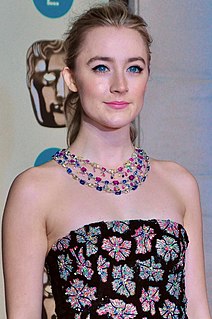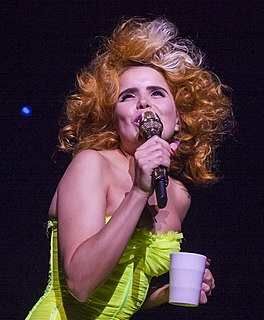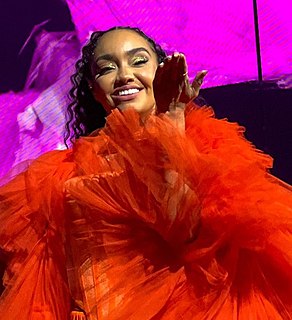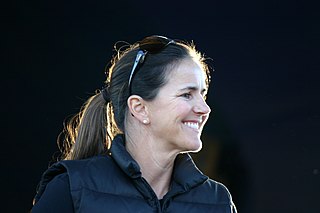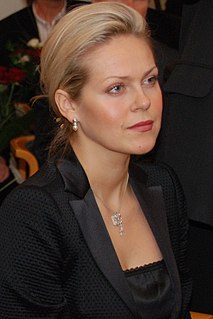A Quote by Justin Baldoni
I think what happens sometimes is, unfortunately, it's a scary thing for men to admit that they want equality or even to say the word feminist because there's a lot of fear that they're going to say the wrong thing.
Related Quotes
When you say 'revolution' when you have only men outside, you know that something is going wrong. I'm not like a hardcore feminist, but I think that one of the things that makes the society advanced is equality between men and women. If half of the society is oppressed by the other half, it's not fine.
A lot of men do have a fear of my ultra-femininity. Sometimes people say I look like a drag queen, that I look scary, but I think that's a fear of my confidence. Most women in contemporary culture pare down their femininity, so there's a slight androgyny about them, and I think men have got used to seeing that.
I think I'm speaking for a bunch of girls when I say that the idea that feminism is completely natural and shouldn't even be something that people find mildly surprising. ...I find a lot of feminist reading quite confusing and that often there's a set of rules, and people will be like, 'Oh, this person isn't a true feminist because they don't embody this one thing,' and I don't know, often there is a lot of gray area that can be hard to navigate.
I would say plotting is the most difficult thing for me. Characterization is only hard because sometimes I feel I get so interested in it that I want to talk too much about the characters and that slows the story down. So I say, "Hey, people want to find out what's going to happen next, they don't want to listen to you spout off about this or that person." But I think even the bad guy deserves to tell his side of the story.
That's what's always been such a curious thing to me about feminism. They never lost any power. However, when you start talking about this particular area of our population, you're talking about the politicized nature of our country where feminism dominates and all heterosexual men want women. And all men realize you've got to do certain things. If you want to get a woman who happens to be a feminist, then you better do and say, be certain things. Men have gone crazy trying to be what they think women want them to be, and that's men in Washington, gone crazy.
I can't say when you'll get love or how you'll find it or even promise you that you will. I can only say you are worthy of it and that it's never too much to ask for it and that it's not crazy to fear you'll never have it again, even though your fears are probably wrong. Love is our essential nutrient. Without it, life has little meaning. It's the best thing we have to give and the most valuable thing we receive. It's worthy of all the hullabaloo.
In a lot of movies, honestly, the directors don't talk to you that much. Maybe they say, "Faster, slower," whatever. Sometimes they give you little adjustments, because sometimes you want to start out neutral, but a lot of times you wind up directing yourself anyway, just doing what you think is the right thing to do.
The "r" word [racism] is a scary word to me - I don't like to say it. I'm not trying to say it doesn't exist. It's incredibly inflammatory and invites a lot of awful mistakes and injustices that have happened and still do happen. It's a word that has been thrown around in a way that incites a lot of bad feelings in most people.
There's no benefit to saying that you're a feminist. But you do kind of get a nice patriarchal pat on the head if you say, oh, I'm not like that, like I'm not one of those crazy feminists, which is something that happens a lot, where young women or young men will express some sort of feminist ideal, will say, you know, I think it's crap that Wal-Mart won't give out emergency contraception, but I'm not one of those crazy feminists.
Sometimes directors come to me when I have to play some horrible thing, scary or hysterical or crying; they ask, 'Did you study somewhere to be an actress?' No, this is life. That's why I think I don't want to say you need a really bad experience to be a good artist, but bad experiences in your life say something.
